いやあ、大変なことをやってくれてるようで、これにはさすがの人民もブチ切れるんじゃないですかね。
North Korea Revalues Currency, Triggering Chaos
North Korea revalued its currency for the first time in 50 years and placed strict limits on exchanging old bills for new ones, moves that appear designed to flush out money that people earned in market activities the country's authoritarian government doesn't like.
50年ぶりのデノミをするって言うんですね。しかも、新ウォンと旧ウォンの交換には制限がかかっていて、市民が市場でかせいでためたお金を一層するのが目的のようなんですな。
The action triggered chaos, according to news outlets in South Korea that specialize in obtaining information from the North, as people rushed to banks and offices of the ruling Workers Party to get information, make exchanges or trade existing North Korean won for euros and U.S. dollars.
市民がパニックになって、銀行やら、労働党のオフィスになだれ込んでいるってことで。
North Korea issued new notes with an exchange value of 100 to 1 against old ones and said people could make exchanges from Tuesday to Saturday.
新旧交換レートは100対1なんだそうで、ものすごいデノミです。ちょっと笑っちゃいますね。
For more than a year, reports from aid groups and media outlets that specialize in North Korea have described crackdowns on markets that operate unofficially but became the center of economic activity when the state-run distribution system broke down after a famine a decade ago.
一年以上前から、国家の配給システムが10年前の飢饉で壊れてしまってからは経済の中心となっていた非公認の市場に対する弾圧が始まっていたそうで、
According to the reports, authorities have forced women, who more often than men are found selling goods in markets, into work at state-run factories and farms. And in June, they shut down the country's largest unofficial market, a sprawling complex where about 30,000 small businesses were believed to be selling food and goods in a suburb of Pyongyang.
当局は、市場で品物を売っていた女性を国家が経営する工場や会社に連れてって働かせたりしている。6月には北朝鮮最大の市場を閉鎖したそうで、そこはピョンヤン郊外に広がっていて、3万もの小さなビジネスが食べ物や商品を売っていたそうです。
According to an account by NKNet, a Seoul-based Web service focused on North Korea, people in Pyongyang on Monday night pressed party officials to allow more money to be exchanged. In response, according to the report, the officials lifted the exchangeable amount to 150,000 won in cash and 300,000 won in savings accounts.
ピョンヤン市民が抗議した結果、(もともと100千旧ウォンだけ許されていたものが)150千旧ウォンの現金と、300千ウォンの銀行口座が交換できるようになったとか。
North Korea last issued new currency in 1992 but hasn't revalued currency since 1959
92年にも新通貨を出したことがあるが、デノミは59年以来のこと。
ほほー。独裁政権らしく、やることが強引ですな。
まあ、この記事では、当局者が市場を嫌っているという風に、イデオロギー的な見方ですが、果たしてそれだけかどうかは分かりませんね。
もともと、公式の配給システムが機能しなくなっているので、市場に頼らねばならない面もあったはずで、完全になくなっても困るんでしょうな。それに、完全に市場経済を否定するなんて、さすがに本気ではないでしょう。
物資が圧倒的に不足しているんで、インフレが亢進して止まらなくなっている可能性だってありますな。あるいは市場経済が発展しすぎて、脅威を感じさせるまでになっていた・・・、それは無いか。 政権内の守旧派と改革派が争っていて、守旧派が勝ったなんてストーリーもありかな。
それにしても、経済の発展やら、人民の生活なんかはどうでも良くて、政権の威信、維持が最優先なのが独裁政権なわけで、かなりの無茶ができるわけですね。しかし、苦労してためたお金が紙くずになるわけで、これは人々に不満が残りますね。
市場の交換機能もしばらく、かなり損なわれれるわけで、経済に与える影響もひどそうです。
意外にいろんなところに波及するかも・・・、ですね。
North Korea Revalues Currency, Triggering Chaos
North Korea revalued its currency for the first time in 50 years and placed strict limits on exchanging old bills for new ones, moves that appear designed to flush out money that people earned in market activities the country's authoritarian government doesn't like.
50年ぶりのデノミをするって言うんですね。しかも、新ウォンと旧ウォンの交換には制限がかかっていて、市民が市場でかせいでためたお金を一層するのが目的のようなんですな。
The action triggered chaos, according to news outlets in South Korea that specialize in obtaining information from the North, as people rushed to banks and offices of the ruling Workers Party to get information, make exchanges or trade existing North Korean won for euros and U.S. dollars.
市民がパニックになって、銀行やら、労働党のオフィスになだれ込んでいるってことで。
North Korea issued new notes with an exchange value of 100 to 1 against old ones and said people could make exchanges from Tuesday to Saturday.
新旧交換レートは100対1なんだそうで、ものすごいデノミです。ちょっと笑っちゃいますね。
For more than a year, reports from aid groups and media outlets that specialize in North Korea have described crackdowns on markets that operate unofficially but became the center of economic activity when the state-run distribution system broke down after a famine a decade ago.
一年以上前から、国家の配給システムが10年前の飢饉で壊れてしまってからは経済の中心となっていた非公認の市場に対する弾圧が始まっていたそうで、
According to the reports, authorities have forced women, who more often than men are found selling goods in markets, into work at state-run factories and farms. And in June, they shut down the country's largest unofficial market, a sprawling complex where about 30,000 small businesses were believed to be selling food and goods in a suburb of Pyongyang.
当局は、市場で品物を売っていた女性を国家が経営する工場や会社に連れてって働かせたりしている。6月には北朝鮮最大の市場を閉鎖したそうで、そこはピョンヤン郊外に広がっていて、3万もの小さなビジネスが食べ物や商品を売っていたそうです。
According to an account by NKNet, a Seoul-based Web service focused on North Korea, people in Pyongyang on Monday night pressed party officials to allow more money to be exchanged. In response, according to the report, the officials lifted the exchangeable amount to 150,000 won in cash and 300,000 won in savings accounts.
ピョンヤン市民が抗議した結果、(もともと100千旧ウォンだけ許されていたものが)150千旧ウォンの現金と、300千ウォンの銀行口座が交換できるようになったとか。
North Korea last issued new currency in 1992 but hasn't revalued currency since 1959
92年にも新通貨を出したことがあるが、デノミは59年以来のこと。
ほほー。独裁政権らしく、やることが強引ですな。
まあ、この記事では、当局者が市場を嫌っているという風に、イデオロギー的な見方ですが、果たしてそれだけかどうかは分かりませんね。
もともと、公式の配給システムが機能しなくなっているので、市場に頼らねばならない面もあったはずで、完全になくなっても困るんでしょうな。それに、完全に市場経済を否定するなんて、さすがに本気ではないでしょう。
物資が圧倒的に不足しているんで、インフレが亢進して止まらなくなっている可能性だってありますな。あるいは市場経済が発展しすぎて、脅威を感じさせるまでになっていた・・・、それは無いか。 政権内の守旧派と改革派が争っていて、守旧派が勝ったなんてストーリーもありかな。
それにしても、経済の発展やら、人民の生活なんかはどうでも良くて、政権の威信、維持が最優先なのが独裁政権なわけで、かなりの無茶ができるわけですね。しかし、苦労してためたお金が紙くずになるわけで、これは人々に不満が残りますね。
市場の交換機能もしばらく、かなり損なわれれるわけで、経済に与える影響もひどそうです。
意外にいろんなところに波及するかも・・・、ですね。










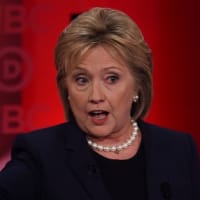
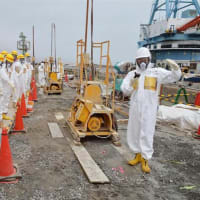
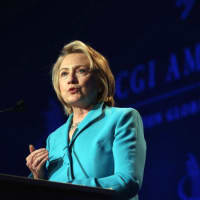
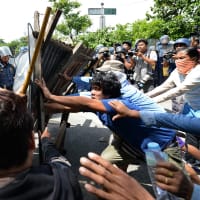
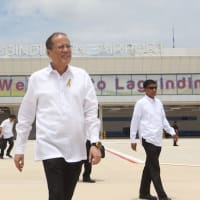
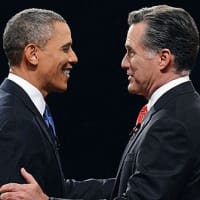
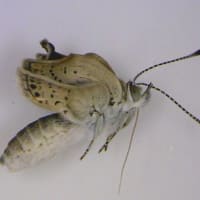
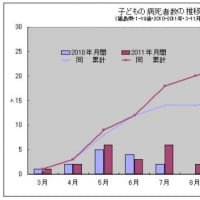
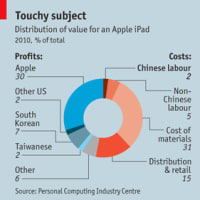
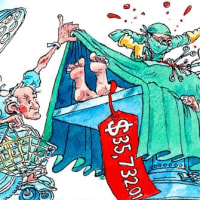
※コメント投稿者のブログIDはブログ作成者のみに通知されます